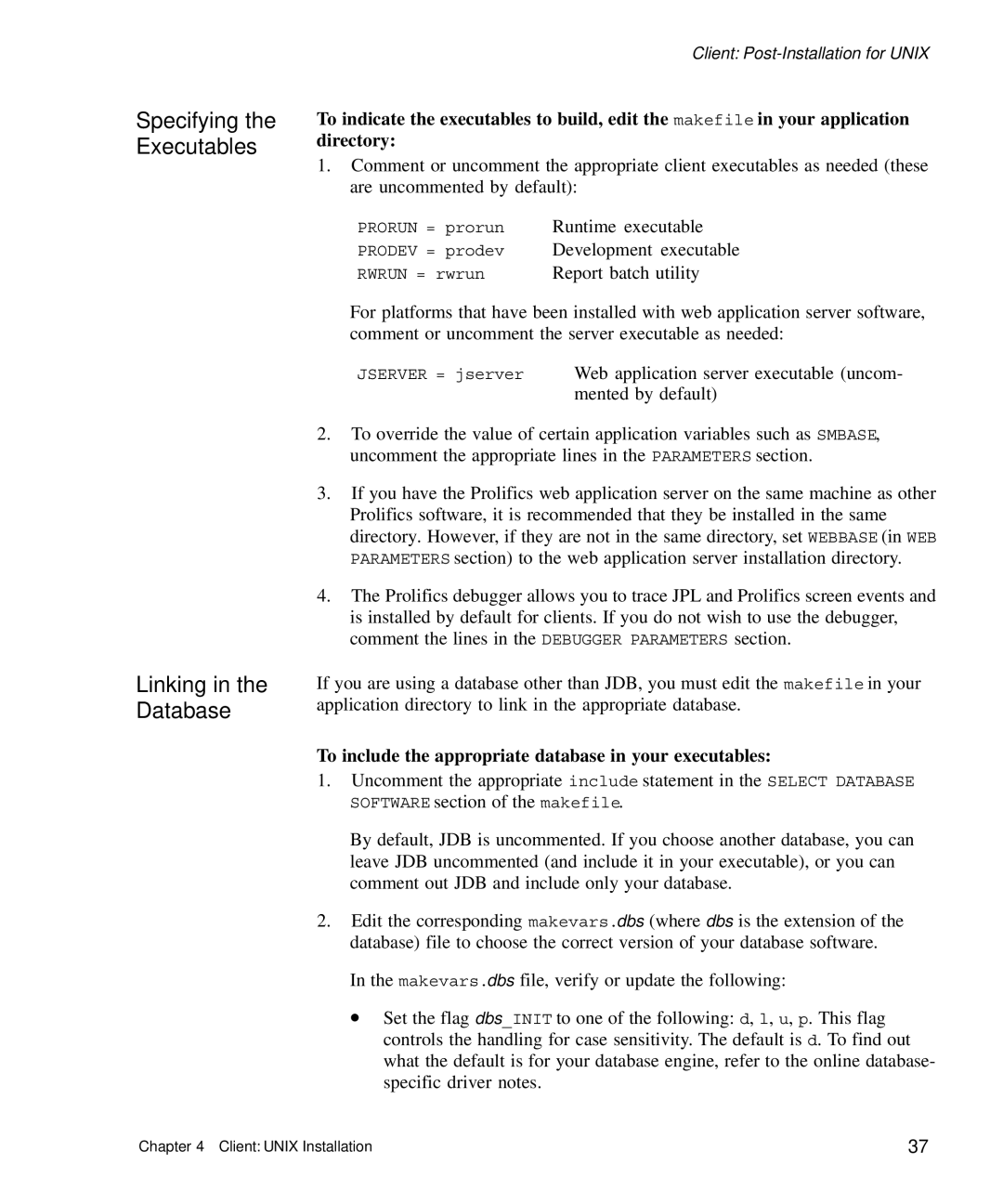Specifying the
Executables
Linking in the Database
Client:
To indicate the executables to build, edit the makefile in your application directory:
1.Comment or uncomment the appropriate client executables as needed (these are uncommented by default):
PRORUN = prorun | Runtime executable |
PRODEV = prodev | Development executable |
RWRUN = rwrun | Report batch utility |
For platforms that have been installed with web application server software, comment or uncomment the server executable as needed:
JSERVER = jserver Web application server executable (uncom- mented by default)
2.To override the value of certain application variables such as SMBASE, uncomment the appropriate lines in the PARAMETERS section.
3.If you have the Prolifics web application server on the same machine as other Prolifics software, it is recommended that they be installed in the same directory. However, if they are not in the same directory, set WEBBASE (in WEB PARAMETERS section) to the web application server installation directory.
4.The Prolifics debugger allows you to trace JPL and Prolifics screen events and is installed by default for clients. If you do not wish to use the debugger, comment the lines in the DEBUGGER PARAMETERS section.
If you are using a database other than JDB, you must edit the makefile in your application directory to link in the appropriate database.
To include the appropriate database in your executables:
1.Uncomment the appropriate include statement in the SELECT DATABASE SOFTWARE section of the makefile.
By default, JDB is uncommented. If you choose another database, you can leave JDB uncommented (and include it in your executable), or you can comment out JDB and include only your database.
2.Edit the corresponding makevars.dbs (where dbs is the extension of the database) file to choose the correct version of your database software.
In the makevars.dbs file, verify or update the following:
•Set the flag dbs_INIT to one of the following: d, l, u, p. This flag controls the handling for case sensitivity. The default is d. To find out what the default is for your database engine, refer to the online database- specific driver notes.
Chapter 4 Client: UNIX Installation | 37 |
